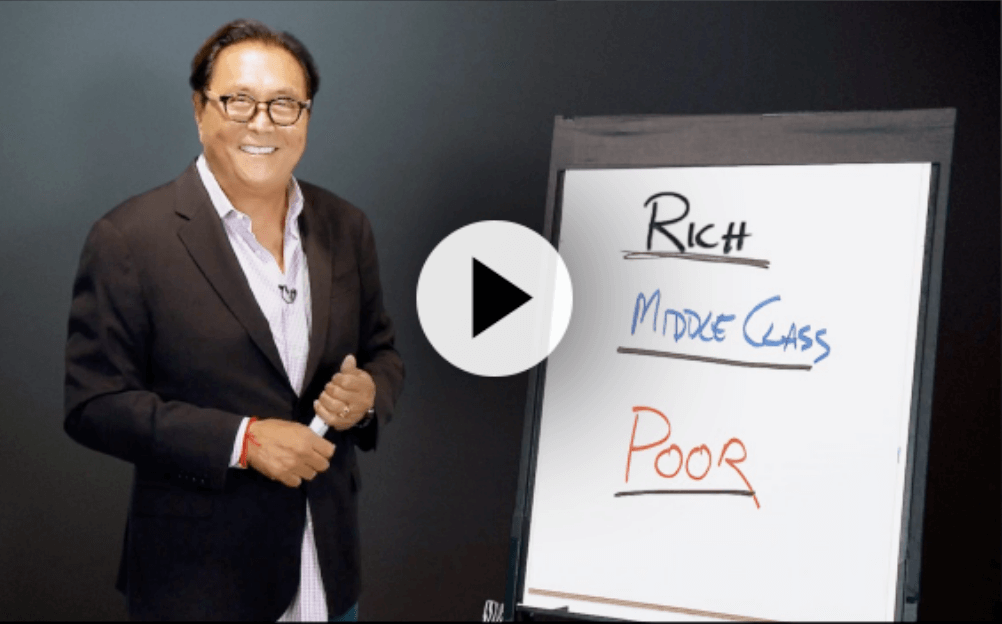In this phase, anything kids can see, taste, and feel is a new and exciting learning experience. They may not understand the word hot, but they soon know what hot feels like. During this learning window, a child's brain is like clay. From birth to 12, a child is a learning machine. Parents don't need to encourage them to learn. They learn actively.
Investing time for games, fun, discussion, and family bonding will pay off when the child enters the second window of learning. This first window is when the brain is whole and neural pathways are connected. After age 12, learning is a bit more difficult. In order to learn something new, a new neural pathway needs to be built from scratch.
It really is harder to “teach an old dog new tricks”—which is why this window is an important one and a time to work with your child to learn new words and definitions, and to begin to explain basic concepts like debt, assets, liabilities, profit, inventing, and starting your own business.
Why "A" Students Work for "C" Students' study guide, Awaken Your Child's Financial Genius, offers games, crossword puzzles, and word-search games to reinforce these new words in this important Window of Learning.
Window of Learning #2 Ages 12 to 24:
Rebellious learning
As a child enters the teens, they start to learn by rebelling. For example, if you tell a teenage boy, "Don't drink," chances are he will drink or at least be more inclined to experiment with alcohol. If they borrow the car and you say, "Don't speed," chances are they will speed.
During this period of life, a child learns what they want to learn, not what they're told to learn. They begin to exercise their power to think and choose for themselves.
This is the stage at which to encourage exploration to find answers to the questions that they are asking. This is a great time to introduce the concept of consequences. In this stage of rebellious learning, telling a child not to do something is likely to trigger the opposite response. Rather than say, "Don't," teach by asking, "What do you think the consequences might be if you did that?"
Encourage your children to make their own decisions in this phase, and if they falter or fail, don't rush in to rescue them. We all learn from experiencing the real-life consequences of our actions and decisions. Look for ways to make the word "consequences" a part of your daily vocabulary.
Window of Learning #3 Ages 24 to 36:
Professional learning
This learning window is where the child, now an adult, learns to make his or her way in the world. This is where parents observe how well they did training and raising up their children. During this third window of learning, individuals begin to grow roots professionally. They go to college, get a good job, and/or build a career.
The stakes are high in this window, and unfortunately, many people find it a huge struggle to find the courage to follow their dreams.
As your adult children find their path in life, it’s likely that both your role as parent and your relationship will have evolved. If you have established a good relationship with your children and invested in family financial education nights, chances are that will pay dividends. You may even see your kids mirroring activities and discussion you had with them when they were in the first and second windows of learning.
A strong foundation of financial education in the home will prepare your kids for the choices that will present themselves as they grow up. This is a time when parents see their adult child exploring and finding their passion in life, and it’s an opportunity to support decisions and choices that will allow kids to create the life and lifestyle that celebrates their unique gifts and how they will share them with the world.
Want More Financial Security?
Quickly learn exactly how to think like the rich and then do what the rich do to achieve financial independence.

Choose to Be Rich—Click Here
Many young adults leave school, even with a college degree, and still don't know what they want to do when they grow up. Today, a child has more choices, careers, and professions available to them. If they have a secure attitude towards learning, they may value learning over money—and that brings true wealth.
If you're looking for more resources, join our free financial educaion community here.